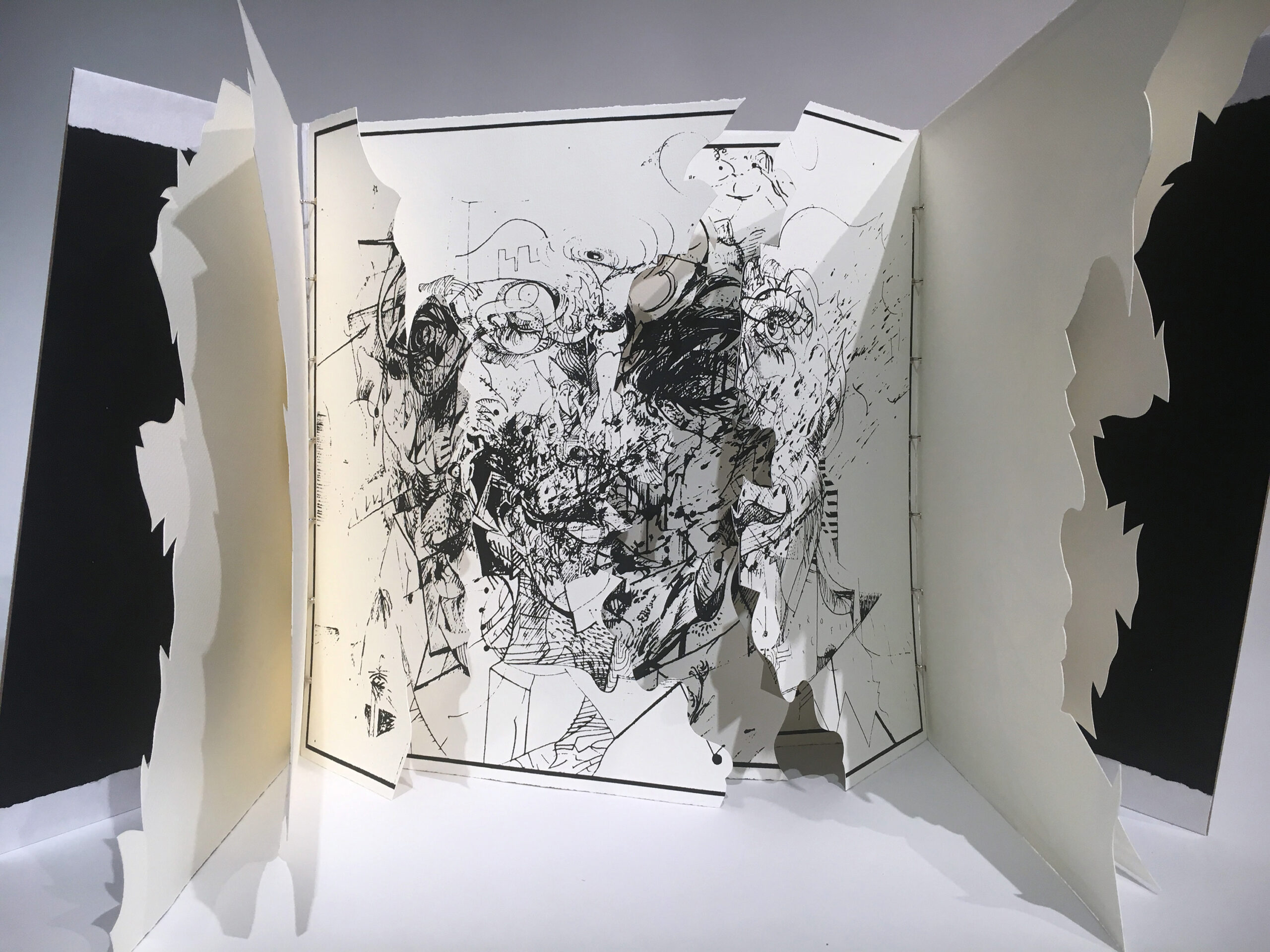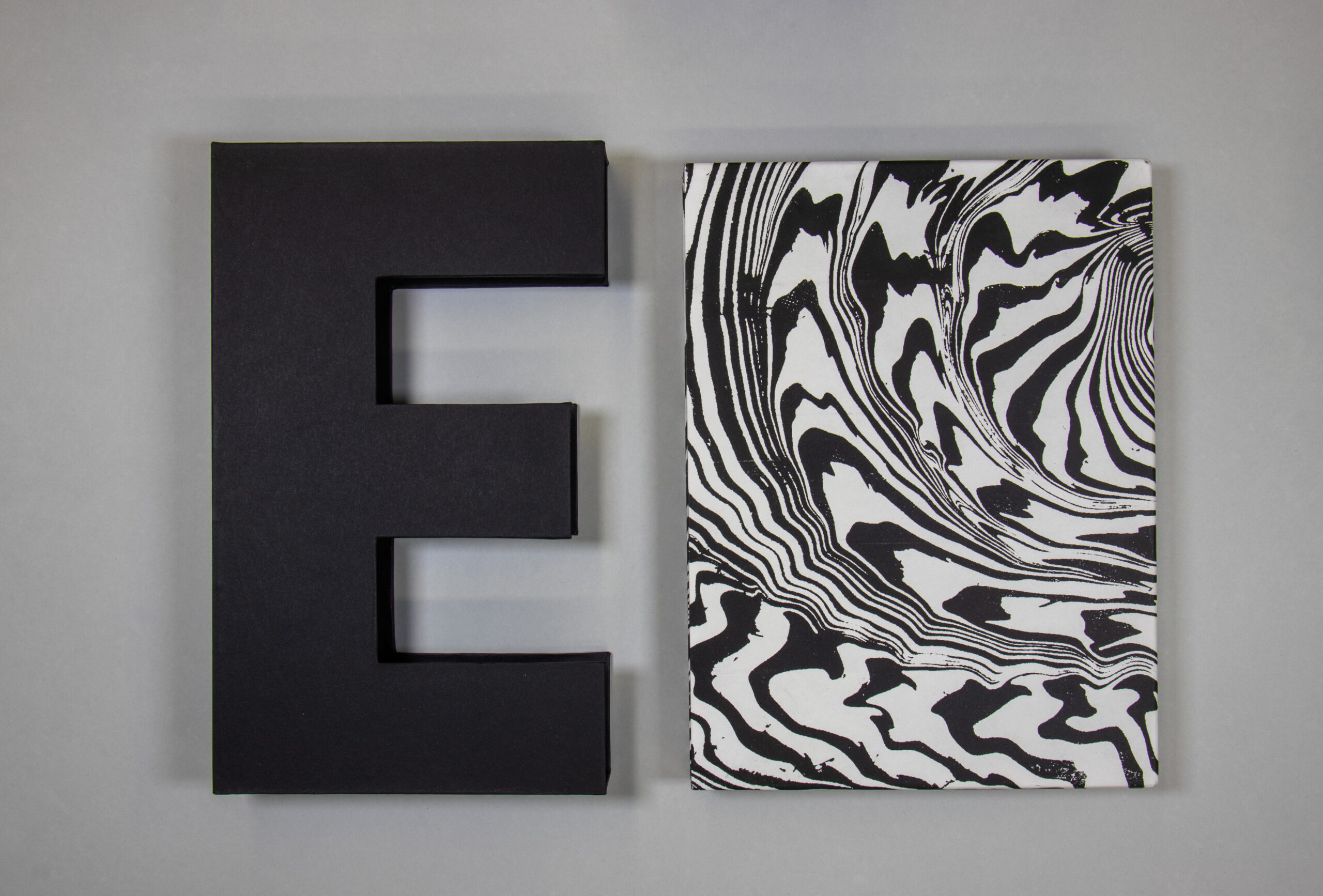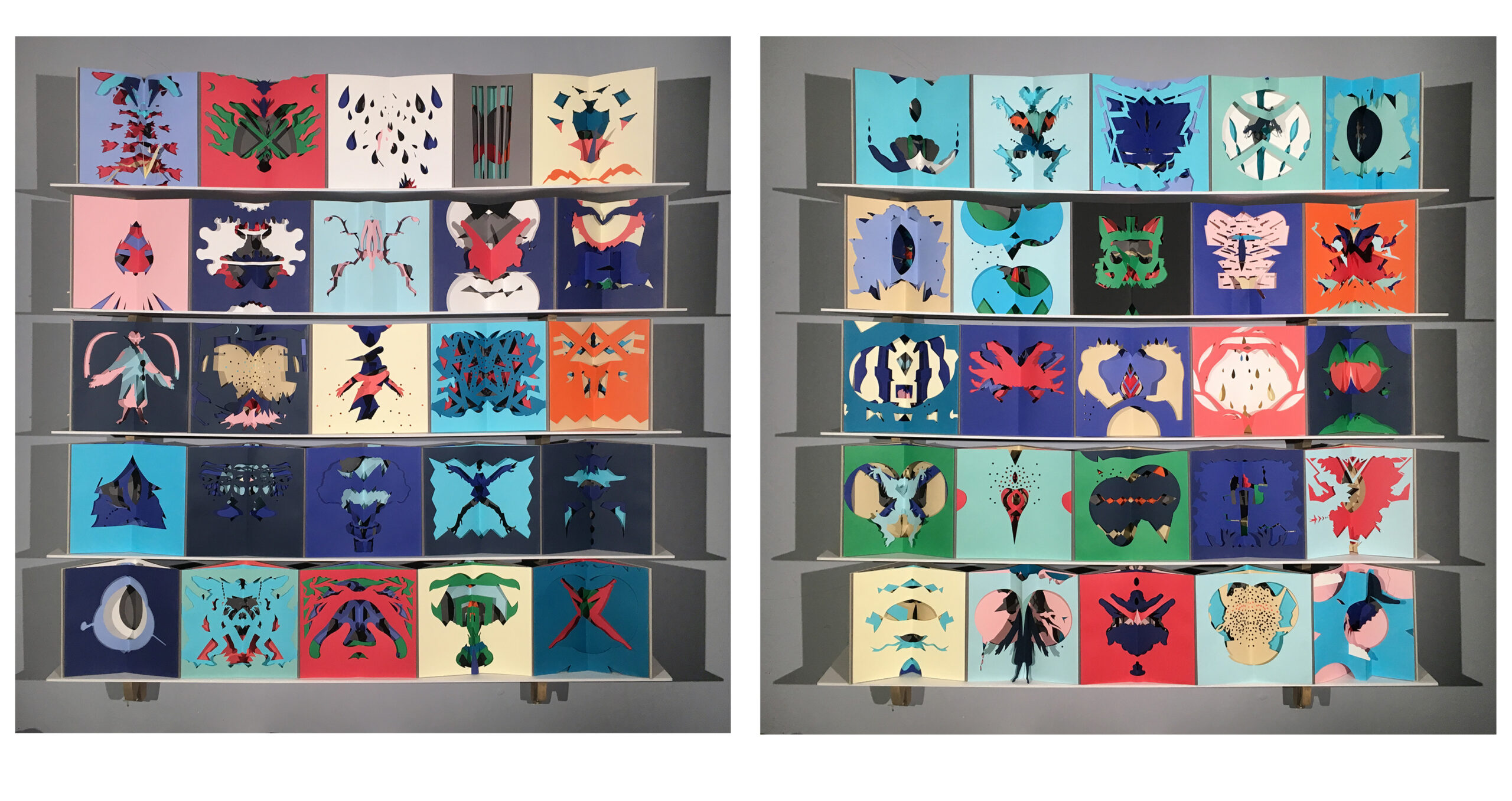Center for Book Arts presents The Greater Coming Together, an introspective exhibition of work by Slavko Đurić (b. 1979, Yugoslavia).
The Greater Coming Together contains at its heart a double-bind between destruction and creation; singularity and plurality. Ðurić’s entangled constellation of artists’ books, prints, and objects cleave into balkanized1 forms that reach out to each other with pages open wide, seeking asylum.
Sculptural, extroverted, and gregarious works obscure what lies beneath the image surface—an intimate topography many times overprinted, salvaged, collaged, ruined, and redeemed. Each gestural remnant suggests something of the metamorphic labor and cadence of Slavko’s practice, which oscillates between sudden, intuitive marks to nearly-archeological periods of accumulation and excavation. Nothing is wasted—layers upon layers of silkscreen, relief and reduction prints, beeswax, paste-ins, pencil marks, walnut shells, and offcuts—tenderly rescued from oblivion.
Ðurić’s interchangeable reliefs (Common Rubbledance; Porta fenestrella; Noble Savage) and double-bound books (InterdependAnce!; Psychographix; Desiderata) are iconoclastic, tense dualities held together by the same forces that would tear them apart. As one’s attention moves from the one to the many, to the spaces in-between, what subsists is a question of unity, and of what it means to be whole.
The Greater Coming Together graciously borrows its name from a letter written in May 1971 by anti-war activist Samuel Melville during his incarceration in the Tombs2:
“I think the combination of age and the greater coming together is responsible for the speed of the passing time. it’s six months now and i can tell you truthfully few periods in my life have passed so quickly. i am in excellent physical and emotional health. there are doubtless subtle surprises ahead but i feel secure and ready. As lovers will contrast their emotions in times of crisis, so am i dealing with my environment. in the indifferent brutality, incessant noise, the experimental chemistry of food, the ravings of lost hysterical men, i can act with clarity and meaning. i am deliberate – sometimes even calculating – seldom employing histrionics except as a test of the reactions of others. i read much, exercise, talk to guards and inmates, feeling for the inevitable direction of my life.”
Samuel Melville 1971
1 balkanized is a largely deprecated term with fraught connotations that, beyond intimate significance to the artist, have found amplified global resonance amid yet another genocide, war, and more mass displacement.
2 four months after writing this letter, Melville helped lead the Attica Prison Rebellion which fought for prisoners’ human rights, fair wages, and against the institutionalized racism and brutality that pervaded—and continues to pervade—America’s carceral and judicial systems. Melville was shot and killed by officers retaking the prison. His letters were published posthumously in 1972, titled Letters from Attica. The above excerpt was also adapted into music by Frederic Rzewski.
Further reading: Attica Is All Of Us.





